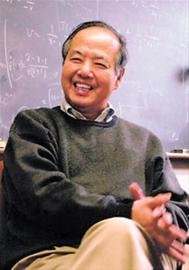
Our earth is not a big planet in the solar system, and the sun does not stand out from the rest of the 400 billion stars in the whole galaxy which also looks very tiny in the universe. However, thanks to our ancestors who created the Chinese civilization, this planet blessed with brown earth and blue water cherishes more distinctive features with greater intelligence and better human ethics than any other parts of the universe.
Although my tight schedule has restrained my knowledge about World Expo 2010 Shanghai China, I believe its greatest importance as a pageant of human civilization lies in its exposition of how the human race living on this planet has constantly moved forward in its exploration of the world and the universe.
World Expo 2010 Shanghai China will be the first comprehensive global exposition hosted by a developing country. For a developing nation like China, hosting this World Expo in 2010 is not only an effort to build a platform for cooperation between countries across the world but also a great opportunity to further strengthen its exchange with other nations. Through this opportunity, the Chinese nation will closely communicate with other cultures and learn from them.
The World Expo is a stage for exhibiting scientific and technological applications. Over the past 150 years, many new achievements in science, technology, ideology and culture have born a relationship with the World Expo.
It was through the World Expo that major inventions like automobiles, televisions, electric lamps and elevators made their debuts and started to gain popularity. As far as I know, this World Expo will showcase many original technological achievements made in Shanghai and in China as a whole, which have grown out of the efforts by generations of scientists in fundamental research.
How shall we Chinese keep coming up with new achievements in the decades after this event?
As I see it, China cannot afford to miss the 21st century in the field of fundamental research.
In the past, China missed the 17th century symbolized by classical mechanics, the 18th and 19th centuries represented by electro-magnetism, and the 20th century epitomized by quantum physics and the theory of relativity. Now, it cannot afford to miss the 21st century. The development of physics in the new century is closely correlated with 'known substances,' 'dark matter' and 'dark energy.'
According to the research results we have achieved so far, the energy of the known substances consisting of such particles as electrons, protons and neutrons as well as a very small number of positrons and antiprotons only accounts for 5% of the total energy of the universe, with the remaining 95% coming from unknown substances, including approximately 22% from dark matter and 73% from dark energy.
We can realize the existence of dark matter from the effects of gravity, and discern the existence of dark energy from the acceleration of cosmic inflation.
To understand and investigate dark matter and dark energy pose the greatest challenges in modern physics. We Chinese must engage ourselves in these fields.
Some people may doubt China's ability to lead the world in these fields. I would like to list two examples to clear their doubts. Nova and supernova, two very important concepts in astrophysics, were both first discovered by Chinese.
We discovered a nova back in the 13th century BC (during the Shang Dynasty), and a supernova in the Song Dynasty. To their surprise, the Chinese scientists of that time noticed a shining star in daytime, which looked 'as big as an egg.'
They recorded its luminance every day for a whole year. These records are among the earliest astronomical observations in the world. Given the remarkable contributions by our ancestors, I strongly believe that modern Chinese scientists can also make outstanding achievements through persistent devotion and unfaltering patience.

